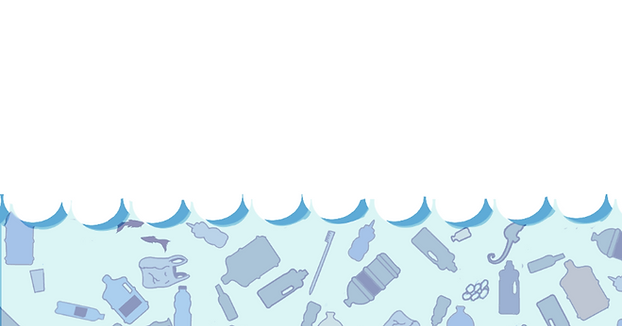Global Ocean supported CCC's Campaign Chile 2008 for the establishment of a whale sanctuary.This campaign resulted in President Bachelet recently announcing the Creation of a Whale Sanctuary in Chile.
The proposal, promoted by Centro de Conservación Cetacea, Centro Ecoceanos and the National Confederation of Artisan Fishers (CONAPACH), will become the greatest marine environmental legacy of President Bachelet.
Barbara Galletti, president of CCC affirmed that "the announcement of president Bachelet is a public triumph on how, as an independent and sovereign country, we want to protect and use the cetacean populations that live in our waters."
Organized Citizenship Obtain the Unanimous Commitment of the Chilean Senate to Create a Whale Sanctuary in Chile Santiago de Chile, September 03 2008 (CCC/Ecoceanos News) –
After a broad and active participation process of the Chilean civil society demanding the endorsement of the Project of Law that will protect all cetacean species found in its jurisdictional waters, known as the Whale Sanctuary, yesterday the Senate Chamber of the Chilean Congress approved the project “in general” and committed themselves to quickly make a few indications to it in order to have the Whale Sanctuary declared before the intersesional meeting of the International Whaling Commission that will take place on September 15 in the Unites States.
Monday September 08 was established as the due date to receive indications and conduct the last vote on the project of Law signed by President Michelle Bachelet last June in the former whaling station of Quintay. This will be the final step to have a National Whale Sanctuary in Chilean jurisdictional waters.
During the discussions on the project of Law, it called the attention the possible indications that could be presented by the Ministry of Foreign Affairs since its Minister, Alejandro Foxley, signed the project of Law sent to congress last June. According to Barbara Galletti, president of CCC, the events occurred yesterday in the Senate “mark a landmark in the way Chileans decide how they want to protect and benefit, in a really sustainable manner, of species that are an irreplaceable part of our natural patrimony”.
Regarding the vote that will take place next week in the Senate Chamber, Galletti stated that “we have full confidence that the indications that will be presented will strengthen the project of Law and that the Senate will fully comply with its commitment of approving the Sanctuary that same day. Ninety nine percent of the Chilean people will be watching our legislators next Monday and expecting that the public call to create a Whale Sanctuary is finally achieve.” Juan Carlos Cardenas, executive director or Centro Ecoceanos, affirmed “the approval of the Sanctuary is a genuine example of participative democracy and a sign of a new era in our society, a society that demands national authorities to listen to our voice and advance towards the protection of species and their ecosystems. At a national level, this is the first major environmental achievement of the new century that shows how people want to relate with these species. We don’t see them as a product anymore but as indispensable part of our planet.” The Session During the debate, several senators made statements in favor of the Whale Sanctuary, including Antonio Horvath (RN), Nelson Ávila (PRSD), Alejandro Navarro (PS), Andrés Allamand (RN), Juan Pablo Letelier (PS), Ricardo Núñez (PS), Sergio Romero (RN) and Guido Girardi (PPD). All of them highlighted that the issue is highly important for the Chilean people and several recalled that 99% considers that the creation of laws to protect cetaceans is fundamental, according to a national survey requested by CCC and conducted by the leading poll agency Adimark-GfK. Most senators also agreed in the firm and decisive position Chile should have in relation to the whaling interests of countries like Japan, Norway and Iceland. Senator Alejandro Navarro stated that independently from the project of Law, “Chile needs to assume a direct and critic position against the countries that insist in conducting whaling operations.” Additionally, several senators emphasized other threats to whale populations, such as the reduction of krill populations, a crustacean similar to a shrimp that is the main food source of many whale species, due to global warming. An Achievement of the Civil Society Senator Antonio Horvath, stated that “the increasing interest of Chile in this matter is thanks to the work conducted by our citizens” and recalled that “in 2003, Centro de Conservación Cetacea created the Marine Mammal Sighting Network that has oriented our senses in the direction of protection.” Senator Nelson Avila explained his concerns regarding the intentions of the Fishing Commission to introduce some indications to the project sent by the Executive branch because “it could delay its approval in a regrettable way and it is urgent to have the necessary instruments to regulate whale watching activities, specially considering that Chile is the second country in Latin America with the highest growing rate of this activity.”
Regarding some indications that senator Horvath seeks to introduce in the project of Law in order to make the recording of cetacean sightings mandatory, Avila stated “this activity has been working effectively for more than five years, through CCC sighting network and by the network established by the Chilean Navy. He concluded that “the project sent by President Bachelet includes all the fundamental elements to elaborate the necessary regulations and plans of actions to guarantee the conservation of cetaceans and the sustainable development of our coastal communities.” Senator Juan Pablo Letelier highlighted that “there are NGOs that have been proposing, promoting and insisting on the need to have the Whale Sanctuary soon. CCC, Ecoceanos and others have work on this and today we should express our gratitude on the way the civil society cooperates in the promotion of ideas that increase the humanity of our country.” Source: Centro de Conservación Cetacea, Centro Ecoceanos






